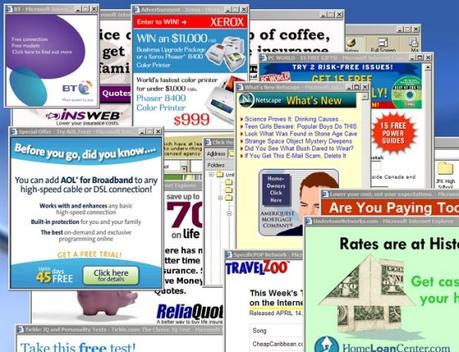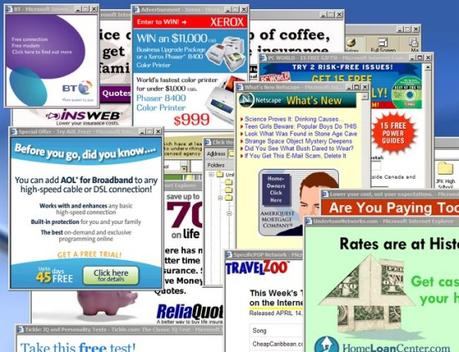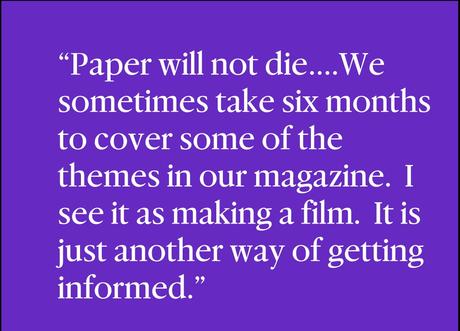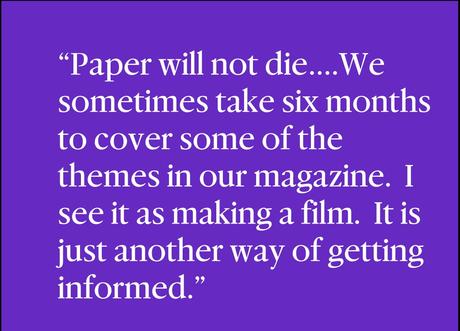



I am convinced that my maternal grandfather was an ad blocker even before the term was even invented.
Indeed, my grandpa and I would watch TV together often, and he was always quick to wait till the commercials started to get up to go get a lemonade from the fridge, or to go to the bathroom. Not only that, but he would urge me to do the same.
"If you want to get up, this is the time to do it, kid," he would say as he hurried out of the living room.
That's as good of an ad blocking as anyone can imagine. Yes, we all have been ad blockers for years.
Today, however, it is not just about getting up when the commercials come. At issue here is a key topic for publishers to monetize their operations. Right now publishers face a revolt from users who are tired of those intrusive flashing banners, panels with loud videos that start playing whether one wants them or not, and, worse, personal information about users' accounts grabbed for ad targeting. It is as if those annoying marketing calls that usually happen around dinner time have spread to all day.
Yes, we don't like the intrusive ads, but this does not mean we reject all advertising messages. Except that now even Apple is making it easier for users to block ads. Apple is approving adblocking applications for its mobile browser, for example.
Concern right now centers around those young (and elusive) users who are technically sophisticated and who routinely use ad blockers. In addition, experts remind us that perhaps there will be some ads that will be more acceptable than others. Publishers may be in a position to say what kind of advertising they will allow on their sites. Which will be acceptable ads that the ad blockers will not block?
Who will set those standards?
And, here I am thinking out loud: will sponsorship and native ads that tell stories be more likely to survive? Will we have to start creating ads that match in quality and creativity what we see at least once a year during the Superbowl half time in the United States?
Not even grandpa would get up to get his lemonade and miss those.
This is a dialog that will continue into the new year, with publishers, technical people and advertising/marketing types joining forces to find a way where monetizing efforts are not sacrificed, but where users get the benefit of better, less intrusive ads online.




Intrusive ad and the article I was targeting to read in The New York Times
Elegantly wise Anna Wintour




Anna Wintour is an iconic fashion figure, always immaculately dressed (favors Gucci dresses ) with those trademark Chanel sunglasses. Last week she went to Madrid to speak to a group of designers as well as fashion design and fashion journalism students,
El Pais devoted an entire page to Anna's presentation, her first in Spain, but I was impressed by the last paragraph in the story, where Wintour referred to print.
Wise words from one of the world's most elegant figures.
Of related interest
'Why fight it?': One tech publication is letting readers remove ads
First paragraph:
Winning the fight against ad blockers might mean not fighting them at all.
Tech site Techdirt is taking the risky step of giving users the option to turn off ads — and without a subscription fee.
The Cost of Mobile Ads on 50 News Websites
http://www.nytimes.com/interactive/2015/10/01/business/cost-of-mobile-ads.html
Highlight:
Ad blockers, which Apple first allowed on the iPhone in September, promise to conserve data and make websites load faster. But how much of your mobile data comes from advertising? We measured the mix of advertising and editorial on the mobile home pages of the top 50 news websites – including ours – and found that more than half of all data came from ads and other content filtered by ad blockers. Not all of the news websites were equal.
Putting Mobile Ad Blockers to the Test
http://www.nytimes.com/2015/10/01/technology/personaltech/ad-blockers-mobile-iphone-browsers.html
First paragraph:
To block ads or not to block ads on your mobile device? That’s the philosophical dilemma facing consumers since Apple added support for ad blockers to its iPhone operating system a couple of weeks ago.
The Ethics of Ad Blockers
http://www.nytimes.com/2015/10/03/opinion/the-ethics-of-ad-blockers.html?_r=0

